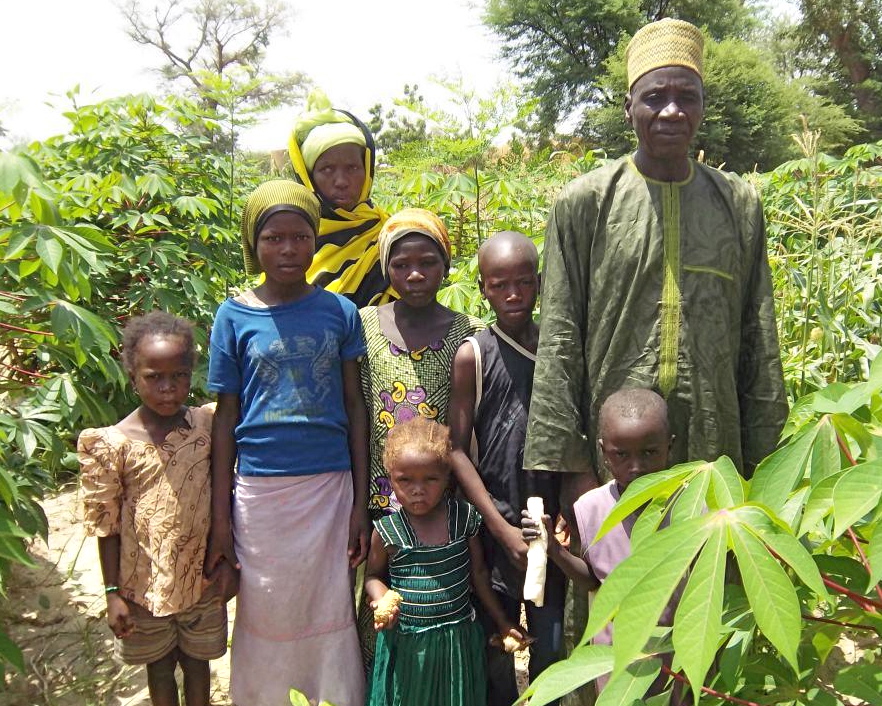

Niger’s schoolchildren learn reading, writing, weeding and watering

When school opened in Falki Babba, southern Niger, this year, there was a novelty for the students to add to their academic pursuits: working in the school’s new vegetable garden.
The beds would need weeding and watering, and when the crops of tomatoes and lettuce, carrots and okra, sweet potatoes and melons and beans came in, all hands would be needed for the harvest.
The school is one of three in Zinder province that the MDG-F is assisting to plant vegetable gardens, projects that both provide wholesome meals for the students and teach new behaviors and attitudes about food.
Djibo Nafiou, president of the school’s management committee and father of five school-aged children, says the garden has improved his family’s health and has been a “school” for the whole community.
“It has taught us about food and nutrition: we’ve learned new farming techniques that we’ve replicated in our own traditional home gardens, and we’ve been able to produce a range of foods that 'build' the body,” he said.
The school garden project is part of a joint UN programme funded by the MDG-F to improve the food security and nutritional status of households in Niger, and particularly that of young children. More than half of Niger’s children under the age of 5 are chronically malnourished, a condition that causes stunting and impairs learning and development.
The MDG-F’s programme focuses on areas with the highest malnutrition rates, like the Zinder region where Falki Babba is located and where 65% of young children are chronically malnourished.
Malnutrition is one of the main mechanisms that cause poverty and inequality to be perpetuated from one generation to the next. Combating malnutrition is key to the MDG-F’s mission of breaking this cycle and ensuring that the poorest and most marginalized of the world’s citizens benefit equally from development.
The goal of the UN joint programme in Niger, as is the goal of all MDG-F-funded programmes, is to help the government achieve the Millennium Development Goals of reducing poverty and hunger and improving living standards by the year 2015.
Schools like the one in Falki Babba are at the heart of the programme’s strategy, which also includes putting nutrition, hygiene and sanitation topics into school curricula and advocating to make nutrition a national priority. Besides the gardens, the joint programme has built modern kitchens, latrines and food storage areas for schools, and has also distributed sport kits to improve schoolchildren’s overall health.
But what is critical to the sustainability of programmes like these is community participation. Djibo Nafiou says that he and other parents organized a “Gaya”, or community volunteer system, to launch their school garden, preparing the beds for planting, and taking turns maintaining the plot.
“The whole village took an interest in the garden, they have really taken ownership of this experience,” said Nafiou. He added that the village children have become very interested in knowing where their food comes from, and have learned about the importance of nutritious food and clean water for their health as a result of the school garden programme.
His 9-year-old daughter, Assana, who helps draw water from the village well to irrigate the garden, agrees: "This garden has been very helpful – now we understand the value of school!”
***********************************************************************************************************
The “Niger childhood, food security and nutrition” joint programme is a collaboration between the government of Niger and five UN agencies (FAO, WHO, WFP, UNFPA, UNICEF and UNDP). Its goals are to reduce Niger’s child and maternal mortality rates, decrease the prevalence of acute malnutrition to below 10%, improve food and nutritional security in households, strengthen nutritional programmes in schools and advocate to make nutrition a national priority.
The programme targets more than 150, 000 children under the age of 5 in Zinder province, 49,000 pregnant and nursing women, 77 schools and 8,000 vulnerable households.